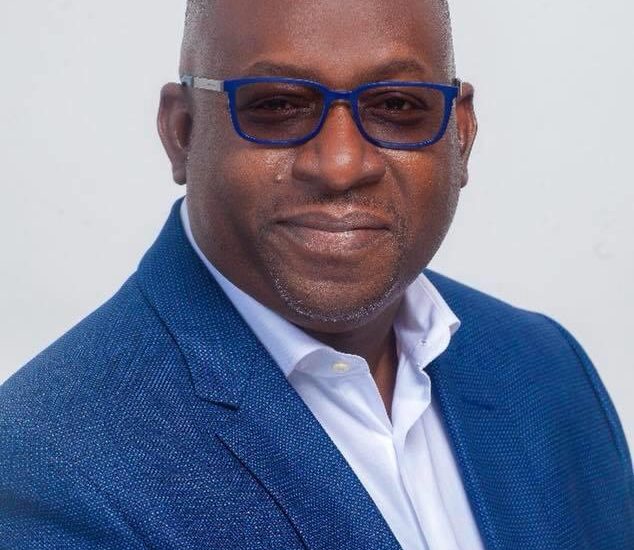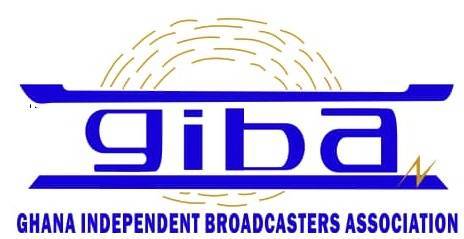- May 4, 2022
- Posted by: emblisha
- Category: News

World Press Freedom Day 2022
Solidarity Message
Mr. Chairman, Chairman of the National Media Commission,
Hon. Deputy Minister of Information,
UNESCO Resident Representative in Accra,
Public Affairs Officer of the US Embassy,
President of the Ghana Journalists Association,
Chairman, Ghana Community Radio Network,
Representative of the Private Newspaper Publishers Association of Ghana,
Senior Journalists,
Media Practitioners,
All further protocols observed,
I bring you compliments of the Executive Council and Members of the Ghana Independent Broadcasters Association (GIBA) and wish to say that, it is our pleasure to join in this year’s World Press Freedom Day celebration.
The celebration of World Press Freedom Day on 3rd May every year since 1993 is to remind governments to uphold the right to the freedom of expression which is a fundamental human right. The media plays an important role in informing the public about the actions of authorities in their country and around the world. This day also aims at celebrating the fundamental principles of press freedom, assess the state of press freedom around the world, defend the media against the attacks on its independence and pay tribute to journalists who have lost their lives in the line of duty.
This year’s theme; ‘Journalism under Digital Siege’, throws the spotlight on the journalism profession in this digital age and the impact on freedom of expression, the security and safety of journalists in pursuit of their profession, and access to information.
For us at GIBA, we see the theme in two facets;
- The opportunities presented by technology and the use of new digital media tools, channels and platforms to enhance the mass dissemination of information to reach a wide spectrum of people across the world;
- And the attendant challenges some of these technologies has had in fueling misinformation and disinformation, making ethical journalism fall under a digital siege.
The challenges journalists face on a daily basis in pursuit of a story, their safety concerns and the growing attack on free speech, freedom of expression and Press Freedom which are inalienable human rights as stipulated in Article 21(1)(a) of our 1992 Constitution.
With new digital opportunities, most of our broadcast entities, are evolving to multi-format content delivery options to ensure financial and operational sustainability and relevance. This is through the deployment of both traditional and new media and the use of convergent technologies, triple and quadruple plays to ensure mass media reach to national and international audience.
Today, Ghana’s celebrated press freedom status has deteriorated, pushing the country down the ladder of the league of countries with the freest media in the world.
According to the 2022 World Press Freedom Index by Reporters Without Borders which measures pluralism, media independence, the robustness of legislative frameworks and the safety of journalists in 180 countries and five regions, Ghana fell from its 30th position in the global ranking in 2021 to 60th in 2022, a drop of 100%. In Africa, the country nosedived from 3rd to 10th. This is Ghana’s worst performance in 17 years when it placed 66th in 2005.
Let’s also note, the 2022 edition of the World Press Freedom Index, which assesses the state of journalism in 180 countries and territories, highlights the disastrous effects of news and information chaos – the effects of a globalised and unregulated online information space that encourages fake news and propaganda.
In 2018, Ghana recorded its best performance in 10 years. It was ranked number one in Africa and 23rd in the world. The following year, the country dropped to 3rd position in Africa and 27th in the world. This year’s report comes amid growing concerns about attacks against media freedom and the use of the law of publishing false news to arrest and detain journalists.
Media freedom advocates and civil society organisations have raised concerns about the increasing hostilities against the media in recent times. Some have condemned what appears to be the reintroduction of the Criminal Libel Law, under the guise of publishing false news using both new and traditional media.
Four civil society groups in Ghana — the Ghana Center for Democratic Development (CDD-Ghana), STAR-Ghana Foundation, IMANI Africa, and Africa Center for International Law & Accountability (ACILA) — in a joint press statement said the law on publishing false news was being abused and should be repealed.
“As a tool for regulating speech, the criminal libel law is fraught with the danger of politicization and selective prosecution, as it leaves it to a party-aligned attorney-general, an appointee who serves at the pleasure of the President, to determine which or whose allegedly false speech or publication to prosecute and which or whose speech to ignore,” they said.
There is the need for urgent structured engagements leading to policy changes by relevant bodies such as the Ministries of Interior, Information, National Security, Ghana Police Service, Civil Society groups, the Attorney General’s office, and the media fraternity to ensure this direction of thought is reversed to enhance the perception and closure on cases in which some journalists have lost their lives or been seriously injured, and media houses equipment destroyed.
We must however bear in mind that in present times, media houses and personnel and particularly journalists are increasingly becoming the targets of abuse and threats which can lead to physical harm of journalists, their sources, and the damage or destruction of their equipment and infrastructure. Having an online presence, also makes them vulnerable to hackers and attacks whose sole objective is to destroy channels that offend the status quo and so inhibit the free flow of information to the wider public.
Journalists and media organisations must put in place the necessary mechanisms to continue with self-regulation, to self-censor, respect privacy, prevent, detect and block intrusions on their broadcast network and ultimately secure their software and hardware infrastructure. More often than not, when there is talk of security and safety for journalists, our minds are drawn to the physical safety of media practitioners.
It is also critical for the operationalisation of the policy on the mechanism for the protection of journalists, and the enactment of the broadcasting law to effectively sanitise and regulate the industry.
May we continue to defend the rights of journalists and media practitioners who play an important role in helping us make informed decisions and act as the main tool of development of our country Ghana. Let us together as a people, not compromise on the role of a free press in traditional and new media and let us eschew any form of intimidation or the suppression of critical speech.
Long live the Ghanaian media.
Long live Ghana.
Long live GIBA.
